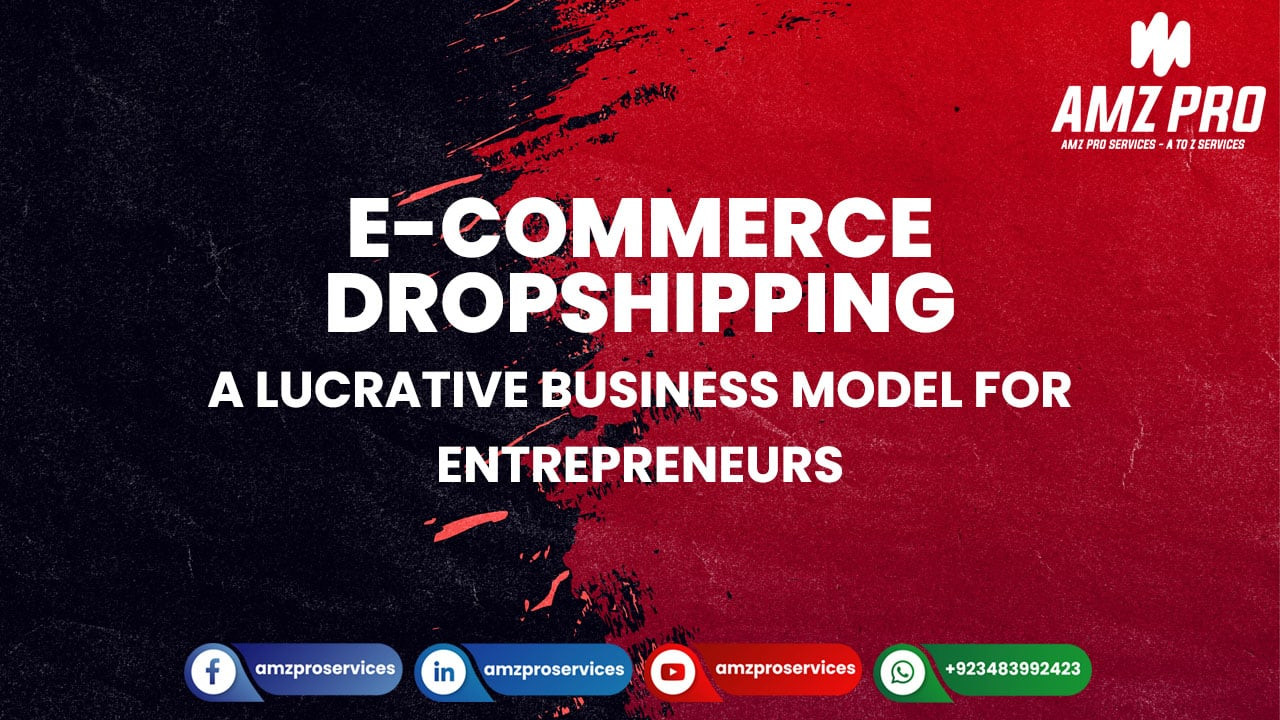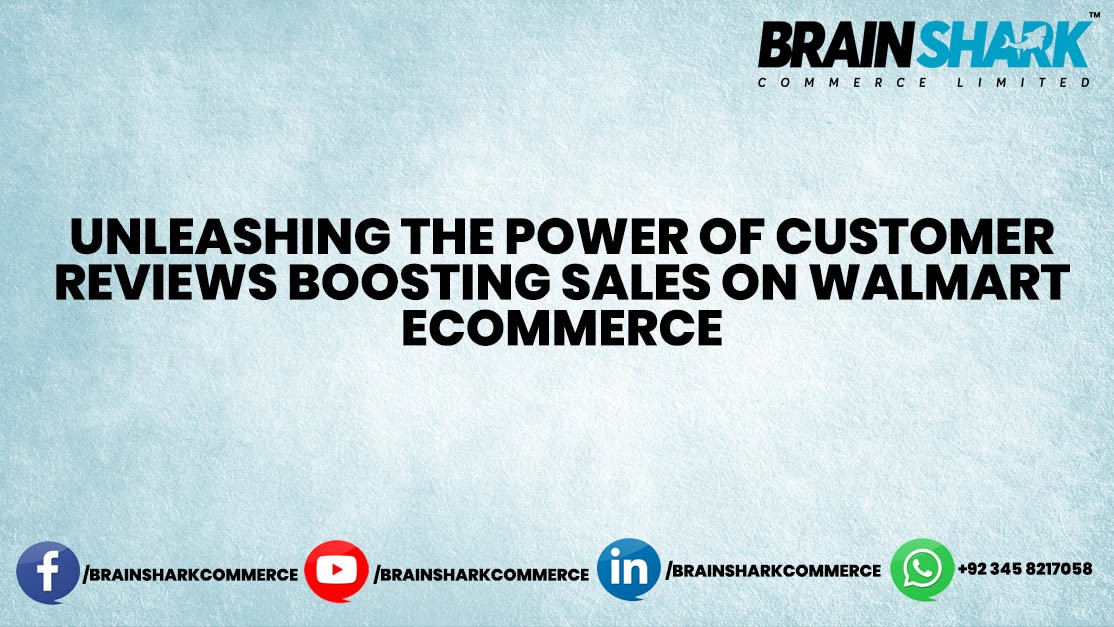E-commerce Dropshipping: A Lucrative Business Model for Entrepreneurs
In today's digital era, the internet has opened up endless opportunities for aspiring entrepreneurs. One such avenue is e-commerce dropshipping, a business model that has gained immense popularity in recent years. Dropshipping allows entrepreneurs to sell products online without the need for inventory or upfront investment. It offers a low-risk, high-reward approach that has attracted many enterprising individuals looking to start their own businesses. In this blog post, we will delve into the world of ecommerce dropshipping and explore why it is a lucrative business model for entrepreneurs.
What is Ecommerce Dropshipping?
Ecommerce dropshipping is a business model where entrepreneurs set up online stores to sell products without the need to keep inventory. Instead, when a customer places an order, the entrepreneur purchases the product from a third-party supplier who then ships it directly to the customer. This eliminates the need for warehousing, packaging, and shipping logistics, making it an attractive option for those starting an online business.
Low Startup Costs and Overhead
One of the most significant advantages of ecommerce dropshipping is its low barrier to entry. Unlike traditional retail models, dropshipping does not require substantial upfront investment in inventory. Entrepreneurs can start their online stores with minimal capital, focusing instead on building a strong online presence, marketing, and customer acquisition. This significantly reduces the financial risk associated with starting a new business.
Wide Product Selection and Flexibility
Dropshipping enables entrepreneurs to offer a vast range of products without the limitations of physical inventory. With the ability to partner with multiple suppliers, entrepreneurs can curate a diverse product catalog and target various niches. This flexibility allows entrepreneurs to adapt quickly to changing market trends and consumer demands, ensuring they stay competitive in the ever-evolving ecommerce landscape.
Location Independence and Scalability
Ecommerce dropshipping liberates entrepreneurs from the constraints of a physical store. With an online business, you can work from anywhere in the world as long as you have an internet connection. This location independence offers tremendous freedom and flexibility. Additionally, dropshipping allows for easy scalability. As the business grows, entrepreneurs can leverage automation tools, outsource tasks, and expand their product offerings to cater to a larger customer base.
Reduced Operational Complexity
Managing inventory, packaging, and shipping can be complex and time-consuming for traditional retailers. However, with dropshipping, entrepreneurs can focus on core business aspects such as marketing, customer service, and building brand value. The suppliers take care of inventory management and order fulfillment, allowing entrepreneurs to concentrate on growing their businesses and providing exceptional customer experiences.
Lower Risk and Higher Profit Margins
Since entrepreneurs do not need to invest in inventory upfront, the risk associated with unsold products is eliminated. With dropshipping, you only purchase the products when you receive an order from a customer. This eliminates the financial burden of holding excess inventory or dealing with slow-moving products. Furthermore, as entrepreneurs have more control over pricing, they can set higher profit margins, maximizing their revenue potential.
Testing and Market Validation
Dropshipping offers an ideal platform for testing new products and market viability. Entrepreneurs can quickly launch new products without the need for significant upfront investment. By analyzing customer response and market demand, entrepreneurs can validate their product ideas before committing to larger quantities or exploring new niches. This iterative approach allows for agility and adaptation, increasing the chances of success.
Integration with Technology and Automation
The advancement of technology has paved the way for seamless integration and automation in ecommerce dropshipping. Entrepreneurs can leverage various tools and platforms to streamline operations, including inventory
management, order processing, customer support, and marketing. Automation not only saves time but also reduces the likelihood of errors, ensuring a smooth and efficient business operation.
Focus on Marketing and Customer Acquisition
In dropshipping, marketing plays a crucial role in attracting potential customers to your online store. With the ability to allocate more time and resources to marketing efforts, entrepreneurs can employ various strategies such as search engine optimization (SEO), social media marketing, influencer collaborations, and content marketing. By focusing on effective marketing techniques, entrepreneurs can drive traffic, generate leads, and convert them into paying customers, thereby increasing their revenue and business growth.
Customer Relationship Building and Branding
While dropshipping allows entrepreneurs to start their businesses quickly, it is essential to focus on building strong customer relationships and establishing a brand identity. By providing excellent customer service, promptly addressing queries, and offering a personalized shopping experience, entrepreneurs can foster loyalty and repeat business. Additionally, branding efforts such as creating a unique logo, designing an attractive website, and delivering quality products can help differentiate your business from competitors and leave a lasting impression on customers.
Navigating Challenges and Risks
Although dropshipping offers numerous advantages, it is crucial to be aware of the potential challenges and risks associated with this business model. Some common challenges include intense competition, supplier reliability, inventory management, and customer satisfaction. To mitigate these risks, entrepreneurs should thoroughly research suppliers, maintain open communication, and continuously monitor product quality and delivery times. Additionally, staying updated with industry trends, investing in customer support, and implementing effective customer feedback systems can help address potential challenges and maintain a competitive edge.
Building a Sustainable and Long-Term Business
While dropshipping can provide a lucrative opportunity for entrepreneurs, building a sustainable and long-term business requires dedication, continuous learning, and adaptability. As the ecommerce landscape evolves, entrepreneurs must stay informed about market trends, technological advancements, and customer preferences. By staying proactive and open to change, entrepreneurs can consistently refine their strategies, expand their product offerings, and adapt to market demands, ensuring long-term success and profitability.
Conclusion
Ecommerce dropshipping offers a lucrative business model for aspiring entrepreneurs. With its low startup costs, reduced operational complexity, and flexibility, dropshipping provides an accessible pathway to enter the world of ecommerce. By leveraging technology, focusing on marketing and customer acquisition, and building strong relationships with customers, entrepreneurs can create sustainable and profitable businesses. While challenges exist, with proper research, planning, and a commitment to excellence, ecommerce dropshipping can pave the way for financial independence and entrepreneurial success.
In summary, the world of ecommerce dropshipping holds vast potential for ambitious entrepreneurs looking to embark on a profitable business journey. Embracing this business model can provide the freedom, scalability, and profitability necessary to build a thriving online enterprise. So, take the leap, explore the opportunities, and embark on a rewarding entrepreneurial adventure in the realm of ecommerce dropshipping.

